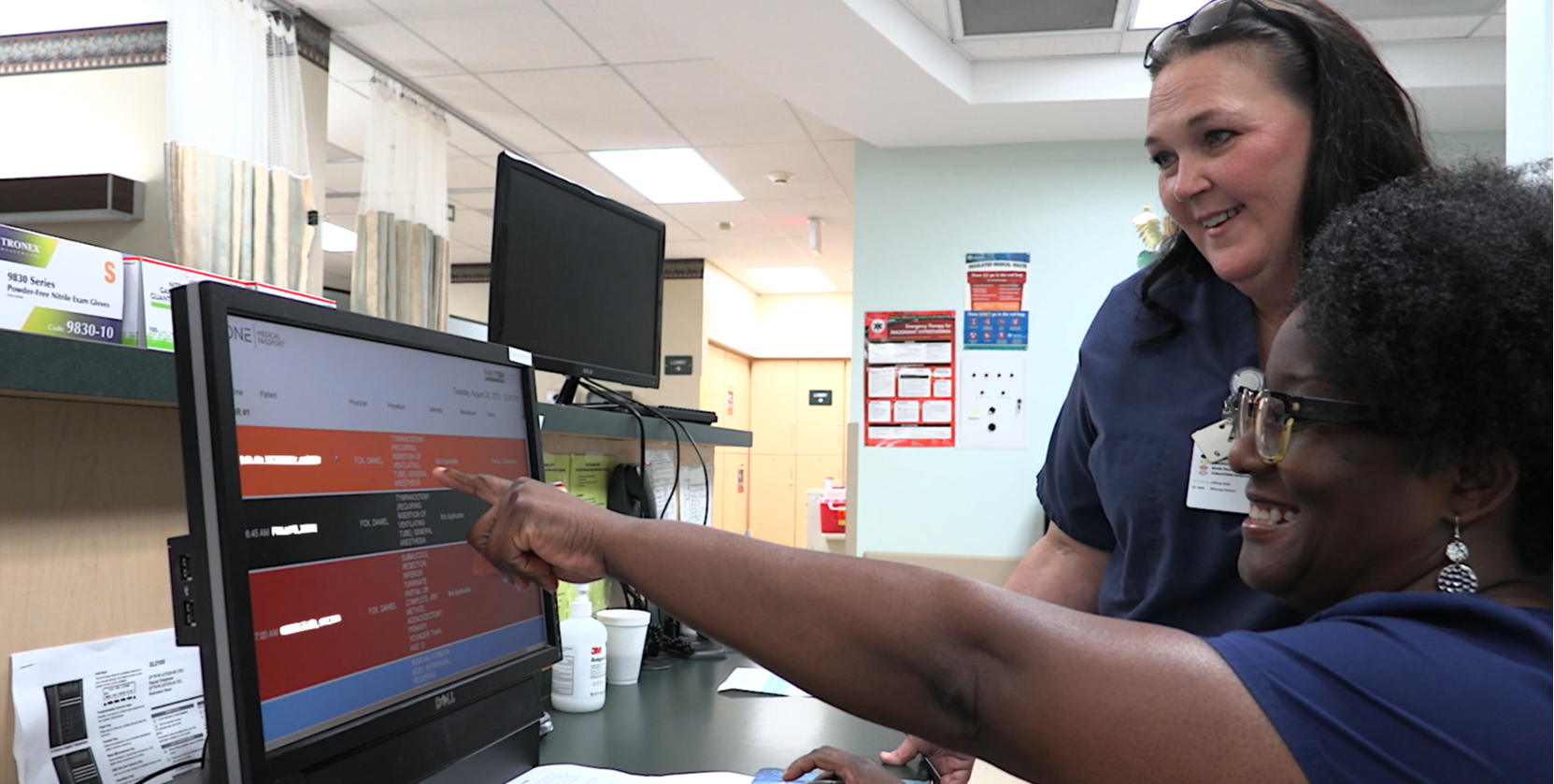It is no secret that healthcare providers are struggling to streamline their cash flow because getting patients to pay in a timely fashion is not always an easy job. Medical debt in the United States has become so commonplace that Forbes reports as many as half of Americans have some kind of medical debt.
Want to stay in the know on the latest ASC tips and topics?
Recent Posts
Looking for Something?
Categories
- ASC (82)
- ambulatory surgery center (82)
- video (36)
- nurse guide (29)
- patient communication (27)
- patient satisfaction (27)
- covid19 (26)
- surgical facility (25)
- business and finance (22)
- technology (22)
- patient engagement (19)
- ambulatory software (18)
- pre-admissions (16)
- Case Study (14)
- ambulatory surgery center software (11)
- outpatient surgery (11)
- culture of safety (10)
- complex cases (8)
- or volume (8)
- administrator (7)
- employee satisfaction (7)
- infection control (7)
- outpatient surgery software (7)
- risk management (7)
- solutions (7)
- cardiac (6)
- disinfect (6)
- patient tracking (6)
- postop (6)
- total joint (6)
- document management (5)
- implementation (5)
- patient survey (5)
- surgery scheduling (5)
- ASC Everyday Heroes (4)
- hiring (4)
- job security (4)
- payment plan (4)
- preop (4)
- scheduling (4)
- security (4)
- surgery center (4)
- women in healthcare (4)
- ASC booking (3)
- CMS (3)
- CMS requirements (3)
- Derek's Corner (3)
- best practices (3)
- data integration (3)
- everyday heroes (3)
- outpatient surgery center (3)
- patient registration (3)
- preop nurse (3)
- revenue (3)
- senior patients (3)
- specialty procedures (3)
- texting (3)
- vendor management (3)
- ASC quality reporting (2)
- Accreditation (2)
- GI (2)
- ambulatory surgery center surveys (2)
- burnout (2)
- cancellations (2)
- clinical (2)
- cost (2)
- digital chart storage (2)
- healthcare consumerism (2)
- hygiene (2)
- new hire (2)
- patient charts (2)
- patient risk (2)
- payments (2)
- screening (2)
- sleep study (2)
- time management (2)
- 2021 (1)
- 4 tips (1)
- Accredited (1)
- Billing (1)
- ERAS (1)
- One Mnet Health (1)
- SaaS (1)
- capnography (1)
- certfication (1)
- colonoscopy (1)
- conscious sedation (1)
- corona virus (1)
- customer spotlight (1)
- diagnosis (1)
- elderly patients (1)
- endo (1)
- intubation (1)
- laryngoscopy (1)
- marketing (1)
- obesity (1)
- online pre-admissions (1)
- outsourcing (1)
- patient (1)
- patient finance (1)
- patient satifaction (1)
- payment (1)
- personalized care (1)
- physician offices (1)
- pricing (1)
- recovery (1)
- sleep apnea (1)
- staff burden (1)
- staffing shortage (1)
- surgery center management software (1)
- top 12 (1)
- vendor communication (1)
- vendors (1)
One of the most pressing challenges facing ASCs and healthcare organizations today is pervasive staffing shortages. While nursing shortages are nothing new to healthcare industry veterans, the Covid-19 pandemic pushed the issue to a critical turning point.
Modern facilities have a number of challenges to tackle on any given day. The ultimate challenge is to figure out how to keep improving your services, increasing patient satisfaction, as well as running an efficient and profitable ASC without bankrupting your most valuable resource — time.
In a bid to mitigate the damage of a mysterious global outbreak, governments worldwide implemented a series of restrictive actions to COVID-19 such as lockdowns, mask mandates, and social distancing. This period of isolation had far-reaching consequences on societies around the world, and created a dramatic surge in the use of digital technologies. In response, the public has grown accustomed to such technological solutions in all aspects of life — remote education, remote work and remote health services have suddenly become a necessity, and not merely a luxury. According to research provided by the International Telecommunications Union (ITU), during the pandemic the number of internet users worldwide grew from 4.1 billion in 2019 to 4.9 billion in 2021.
In the modern day and age, patients — as consumers in everyday life — are highly digitally empowered. As their digital skills evolve and demand for digitalization grows, healthcare providers must make an effort to keep up with the times and adapt to meet patient expectations.
In this day and age, creating a seamless patient journey is not an easy job. While by and large the patient experience depends on staff, they cannot be expected to do everything on their own. When staff are overworked without enough personnel to provide assistance, patient experience — and hence patient satisfaction — suffers.
Healthcare providers across the board, including surgical facilities, struggle to streamline their revenue because getting patients to pay is not always easy. In fact, medical debt in the United States has become so commonplace that Forbes reported no less than half of Americans struggling with some kind of medical debt.





.png)


